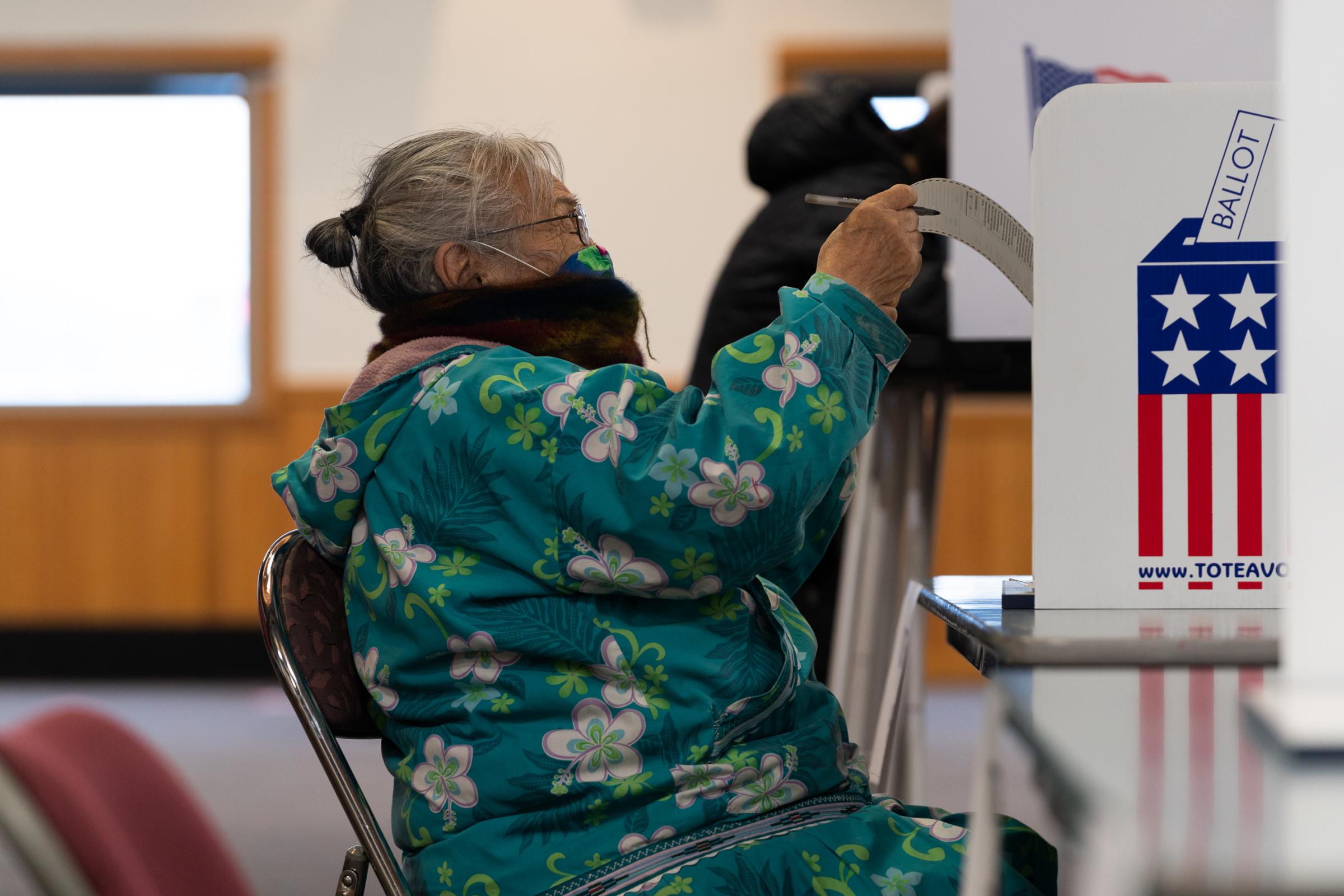
A group of Alaskans has filed a lawsuit seeking to block the recently passed Ballot Measure 2, the elections overhaul initiative.
Members of the Republican, Libertarian and Alaskan Independence parties filed the lawsuit in Anchorage Superior Court on Tuesday.
“It harms individual rights to free political association, so we can get our candidates elected,” said Attorney Kenneth Jacobus, one of the plaintiffs.
Other plaintiffs include Anchorage resident Scott Kohlhaas, who recently ran as a Libertarian for a House seat; Alaskan Independence Party chair Bob Bird; and the Alaskan Independence Party.
The measure has three main components.
It changes Alaska’s primaries so that members of all parties compete in the same primary, with the top four finishers advancing to the general election.
In the general election, voters will be able to rank their choices. If no candidate receives a majority of the first-place votes, the second choices of trailing candidates will be counted until there’s a winner.
And the measure makes it more difficult for so-called “dark money” campaign donations to be hidden.
The lawsuit says the measure violates provisions of the federal and state constitutions, including those related to political association and free speech.
Jacobus is concerned that the new law allows candidates to determine what party information is next to their names on the ballot. He says this would take away the party members’ rights to associate with who they want to.
“A Socialist could claim they were a Republican, and they’d go Republican on the ballot — withholding information from the people is not in the best interests of anybody,” he said.
Jacobus says he doesn’t object to the ranked-choice voting, but is deeply concerned with the top-four open primary.
According to Jacobus, the plaintiffs filed in state court rather than federal court both because they want the issues to be resolved within the state and because the state law regarding political association is stronger than federal law. Jacobus hopes that other plaintiffs and political parties will join the lawsuit. He noted that there were multiple lawsuits challenging the ranked-choice voting initiative in Maine that were ultimately unsuccessful in blocking a new system there.
He expects the Alaska Supreme Court to ultimately weigh in on the case once it’s been heard in Superior Court.
Scott Kendall is the lawyer for the Yes on 2 campaign and helped write the measure. He says the U.S. Supreme Court has addressed the plaintiffs’ primary argument by allowing similar open primaries in other states.
“Open primaries of this kind are absolutely constitutional,” he said. “So, I mean, this ballot measure was designed with an eye towards existing case law and existing law. And it was designed to withstand constitutional scrutiny. And frankly, we don’t see anything in this lawsuit that presents a serious threat.”
Kendall expects the Yes on 2 campaign to intervene in defense of the law.
A spokesperson for the Department of Law says the department will review the filing and respond in a timely manner.
